Program and speakers
Video sessions with the following guest speakers will be streamed online over the course of seven days, on 12–18 April 2021.
Mon, 12 April
Tue, 13 April
Wed, 14 April
Thu, 15 April
Fri, 16 April
Sat, 17 April
Sun, 18 April
Day 1 • April 12, 2021
Living the Montessori way
Some years ago, Paul Epstein and I wrote a book called The Montessori way Our premise is that the ideas that Maria Montessori proposed did not begin with her. While they are not unique to her, they are extraordinary,
Montessori developed a replicable, sustainable, adaptable system-of-systems that you and I call that the Montessori way. It is so much more than a curriculum and method of instruction. It is a way of nurturing children’s sense of personal agency, curiosity, imagination, tenacity, and wonder.
Montessori is a way of life for us as adults, as well as for children. It should inform how we work with one another in our schools. It is a way of providing inspired leading classrooms, schools, businesses, boardrooms, and in civil life.
There is a way of living Montessori in our home with our partners, children, and extended families. It is a path toward a better tomorrow and a more fulfilling and joyful life today.
In this talk, I will explore the fundamental principles and interpersonal social norms that attract parents and great teachers to our schools and keep them engaged, how to lead a Montessori classroom or a community of Montessori educators and families as a circle of partnership and connection.
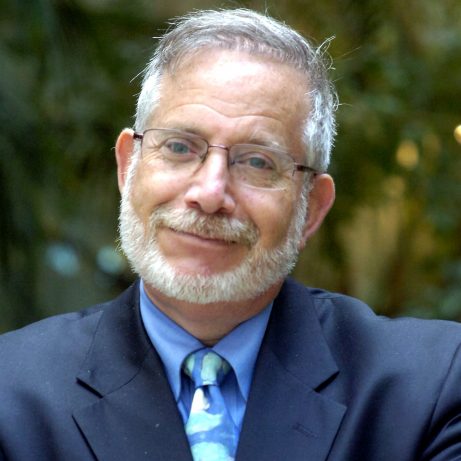
Tim Seldin, M. Ed. – AMS
Tim is the President of the Montessori Foundation and Chair of the International Montessori Council. He is a co-founder of the Center for Guided Montessori Studies and Co-Director of its Montessori School Leadership Certification Program.
His more than forty years of experience in Montessori education includes twenty-two years as Headmaster of the Barrie School in Silver Spring, Maryland, which was his own alma mater from age two through high school graduation. Tim was the co-founder and Director of the Institute for Advanced Montessori Studies, the Center for Guided Montessori Studies, and currently also serves as the Head of the New Gate School in Sarasota, Florida. He earned a B.A. in History and Philosophy from Georgetown University, an M.Ed. in Educational Administration and Supervision from The American University, and his Montessori certification from the American Montessori Society. Tim Seldin is the author of several books on Montessori Education, including his latest, How to Raise An Amazing Child, The Montessori Way with Dr. Paul Epstein, Building a World-class Montessori School, Finding the Perfect Match - Recruit and Retain Your Ideal Enrollment, Master Teachers - Model Programs, Starting a New Montessori School, Celebrations of Life, and The World in the Palm of Her Hand.
Tim is the father and step-father to five former Montessori students, and the grandfather of a new generation of Montessori students. He lives on a small vineyard north of Sarasota, Florida with his wife, Joyce St. Giermaine, their many horses, dogs, and cats.
Welcoming positive discipline into your Montessori home
Living with young people can be challenging at times. But it doesn’t have to be that way forever.
In this masterclass, you’ll learn the benefits of introducing Positive Discipline tools into your home.
We’ll determine together what your parenting style is and how to make the most of it.
You’ll learn why punishment is almost never the answer to discipline and what to do instead.
We all want to be kind loving parents yet we don’t always have the tools and strategies necessary to do so, especially if that is not the way we were raised.
You’ll learn important strategies on how to cultivate cooperation in your home as well as discover a powerful tool to ‘really’ know what your child needs at any given moment.
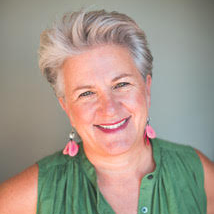
Jeanne-Marie Paynel
Jeanne-Marie Paynel, M.Ed, is a Parenting Mentor and Home Consultant guiding parents to let go of feeling overwhelmed and enjoy raising self-sufficient and resilient children with ease.
She’s the host of The Art of Parenting podcast and founder of Your Parenting Mentor (formerly Voila Montessori) where she guides expectant parents, caregivers, and parents of young children to prepare their homes and themselves for children to thrive during the first years of life.
She believes that a supportive and peaceful atmosphere at home will allow every child to flourish as an independent confident and capable learner. She combines her three passions: Montessori, Conscious Parenting, and Positive Discipline.
Her mission is to help parents appreciate the true importance of their role - not as servants or teachers, but as supporters and guides of their children's natural development.
The importance of attachment in the first three years of life
Life is a chain of attachment and separation. We have to let go of something to allow the next attachment to happen. Life is always heading towards something greater and better.
Today more than ever, the emotional aspect of a child's development should be observed and handled with care and knowledge. As Adults, we can play a large psychological role in the child’s attachment process by modeling healthy human attitudes and behaviors.
When there is a positive attachment, the connected separation also has a positive potential, which affects the next attachment, and so on. In this session, we will talk about why attachment is essential for a child’s development? How does a sting attachment lead to healthier and smoother separation?
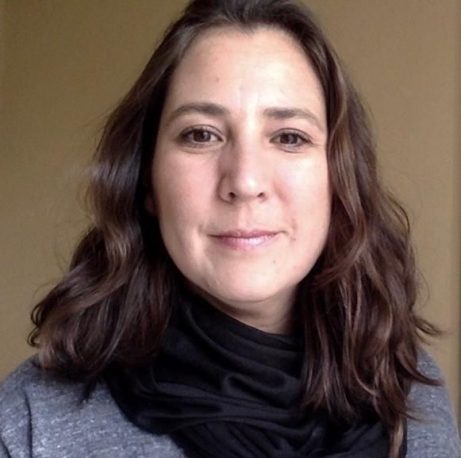
Gabriela Velazquez
Gabriela’s Montessori journey began as a child. Her mother was a Montessori teacher, so she grew up attending Montessori schools in México. It was only natural that she also decided to pursue a career in Montessori education upon reaching adulthood. After completing her degree in Early Childhood Education, she earned the AMI Assistants to Infancy diploma. She would go on to work for more than 20 years in Montessori schools in México and the United States. Gabriela completed the demanding AMI Training of Trainers program to be named an AMI Trainer at the level of 0-3 Assistants to infancy. She has worked on 0-3 teacher-training courses in Argentina, Denver, San Diego, and Taiwan.
Recently presented 0-3 Assistant Certificate courses in Phoenix, China, Argentina, Spain, and Mexico. She serves as a lecturer, consultant, and examiner for AMI, and she is the Director of Training at Southwest Institute of Montessori Studies in Mesa, Arizona. Instituto Montessori Valencia in Valencia, Spain, and at the Montessori Training Center Poznan in Poznan, Poland.
Writing social stories for the classroom and at home
Social stories are stories written by a parent or educator that objectively describe what has happened or will happen to a child without judgment or criticism. It can be supported by very simple pictures or photos. Social stories can be used to prepare children for new challenging experiences, such as transition to preschool, doctor’s appointments and traveling. They can also be used to help children process what has happened to them, especially if the situation was stressful. Stories can be used when something tragic occurred (e.g., a car accident or a death in the family) or for day-to-day situations (e.g., difficult day at the park or a scratched knee). The purpose of writing and reading this simple story is to start a conversation with your children when they are not feeling emotional, when instead they are ready to listen and integrate the information between their left and right brain.
The goal of my workshop is to guide parents and educators in writing social stories for children. In the workshops, we:
- Discuss how social stories are a way to express respect towards children.
- Explore situations when you may need to write a social story to support your child better.
- Examine how social stories can help children cope or process challenging situations.
- Discuss some guidelines on writing social stories.
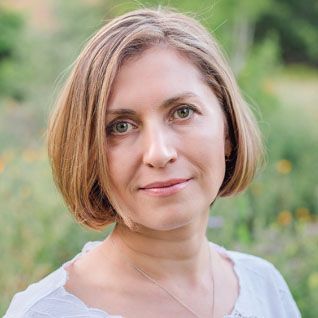
Kira Solomatova
Kira Solomatova (Pasadena, California) has a Bachelor’s Degree in Child Development. Although both of her parents were engineers, Kira dreamed of working with children from the time she was just seven years old, finally becoming a preschool teacher at the age of nineteen. After teaching preschool for many years, Kira discovered RIE® and became a RIE® Associate. Not only is RIE inspirational by advocating for children, it also helped Kira become a more authentic person herself. She published her first book, Toby is My Bear, as part of a conflict resolution series for preschoolers, and she has a blog about conflicts with toddlers and preschoolers at www.ourparentingplace.com. Kira teaches RIE® Parent-Infant Guidance™ classes and workshops, and does private consultations in English and Russian.
Honest conversations
Understanding how our language affects both our children and ourselves, opens an incredibly powerful gateway to nurturing authenticity and cultivating respect. In this talk, we will explore the potent effects that self-exploration and raw honesty have on our relationships and on the development of the adult that our children will become.
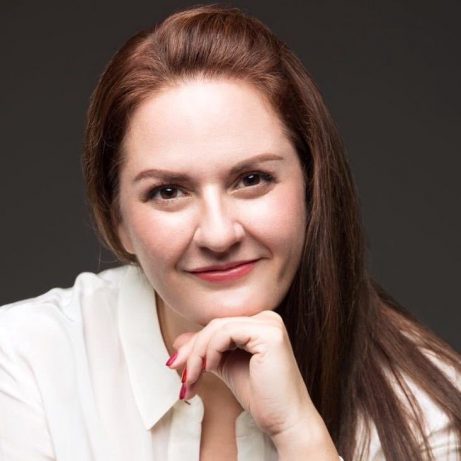
Paula Zhou
An advocate for respectful and effective communication, Paula has worked in Early Childhood education in China for more than 20 years. An experienced Montessorian and teacher trainer for the 0-6 age group, Paula is also a parenting specialist/family consultant and a licensed Gordon Training International Parent Effectiveness Training (P.E.T.) Instructor. A sought after speaker at international conferences, Paula connects with her audiences through humour and anecdotal experience, drawn from both her years of working with children and their families as well as from co-parenting her own, cross-cultural family. Paula is intensely fascinated by the mind and the study of human behaviour and is an ongoing student of Interpersonal Neurobiology. She is also a children’s yoga and mindfulness guide and believes strongly in the importance of arming our children with the skills of mindfulness and emotional regulation.
A TEDx speaker, Paula’s recent passionate talk on the importance of listening to children has been shared extensively throughout the world. Paula is the co-founder of Insight Education, a consultancy practice with a mission to nurture the healthy growth of every child through supporting schools, families and communities world-wide and currently works as the Director of Programs for Higher Ground Education/Guidepost Montessori, China.
Bring watercolor joy into the classroom
Bring the Joy of Watercolor into your classroom or home!
Learn how to set-up and teach your kids basic watercolor painting lessons.
In this 1 hr training I'm going to share easy tips and lessons you can get started with
You'll learn :
How-to choose watercolor paints for little kids How to integrate watercolor lessons into your Montessori curriculum How set-up watercolor painting promops Best paint materials for 3-6
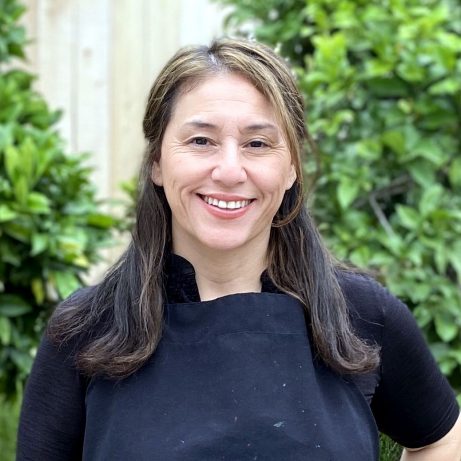
Spramani Elaun
International Montessori Art Trainer, Nature of Art®
Spramani Elaun trains teachers and parents Internationally how to teach kids visual arts.
Spramani is a homeschool mom of two, author of seven art education books, artist and the founder of Nature of Art® Art School & Online Art Supply company based out of San Diego, California. Visit Nature of Art® @ www.Montessori-Art.com
Traditional Sports versus Montessori Sports Education
The lack of movement is one of the biggest threats to health in modern societies. Physical activity is imperative to overcome this threat.
Montessori is an interest-based educational philosophy. With more than 6 billion people interested in sports, it is universal in its appeal to children. Montessori Sports sparks this interest to enhance the overall development of children.
Sports offers a prepared environment to enhance the physical, emotional and spiritual development of children, provided that it is designed and maintained using Montessori principles.
In this workshop we will:
- Analyse what Dr. Montessori's approach was towards sports
- Explore how the current traditional sports education system is organized
- Explain that there are two different paradigms within youth sports education
- Apply Montessori principles to the sports environment
- Conduct observations on different examples of sports environments
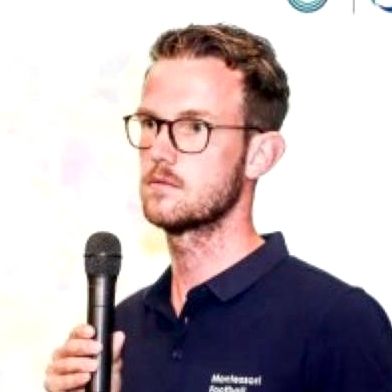
Patrick Oudejans
Co-founder of Montessori Sports. Former coach and data analyst of the AFC Ajax youth football academy (2012-2016). Coaching youth football since 2006 (ages 3-16). Patrick holds a honors bachelor degree (Bsc) in Sports, Management and Business at the Amsterdam University of Applied Sciences. Currently attending the AMI 3-6 diploma course training.
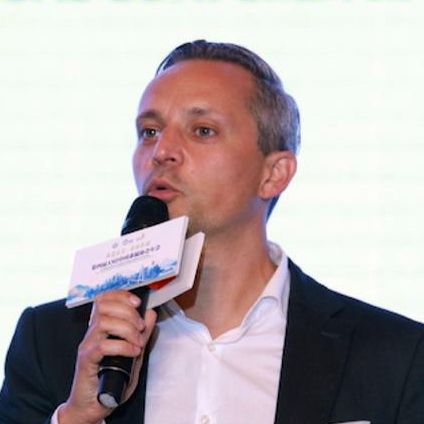
Ruben Jongkind
Co-founder of Montessori Sports. Former Head of Talent Development at the AFC Ajax youth football academy (2011-2016). Coach of professional atletes in track and field, triathlon and football. Ruben holds a degree in Environmental Science from Wageningen University and a Master in Business Administration (MScBA) from Nijmegen Business School. Currently attending the AMI 3-6 diploma course training.
Day 2 • April 13, 2021
Montessori myths busted - common misconceptions unraveled
Sometimes Montessori can be confusing, it can be an overload of information and the questions of "Is this Montessori?" come up quite a lot. In this session I will be clarifying all these questions and misconceptions that commonly come up to help you navigate your Montessori journey with confidence and sound knowledge. It may also challenge some pre-existing ideas you may have regarding Montessori and it's practice, so get ready to open your mind and discover what truly IS Montessori, so you can embark on your journey with enjoyment and ease.
It's time to crack open the case files and delve into uncovering the truths behind popular myths surrounding Montessori! You've heard them all: "Materials have to be wooden" , "Montessori doesn't like colour", "It forces the child to do chores", "It doesn't allow imagination", "It's the same as Waldorf", "I can't afford it, it's so expensive" - and so much more!
Join me for an informative deep dive discussion in tackling the top 10 misconceptions of Montessori.
Let's discover together if they are indeed - fact or fiction?
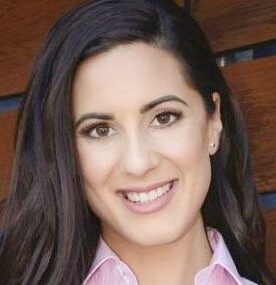
Sylvia Arotin
Sylvia Arotin has had over 10 years experience in Montessori teaching and is the founder and director of My Montessori (0-6 yrs) school in Sydney, Australia. Her passion for children’s learning and development, as well as supporting and educating adults, has been fundamental in developing her well-established Guide & Grow brand. Guide & Grow is the largest online Montessori support platform for parents/educators in the world with over 150,000 members in the village. Guide & Grow helps parents and educators to build their skill set through NESA accredited workshops, online resources & training seminars; specializing in the art of Montessori communication, guiding behaviour & building children’s skill set. Her wealth of knowledge and drive has helped paved her way to success throughout the years. She holds an International Montessori 0-3yrs training, 3-6 AMI Assistants training, an International Communications degree and a Masters in Teaching specializing in early childhood (0-5 yrs) (Honours) from Macquarie University. Sylvia is truly an inspirational motivator to all those who cross her path, be it educators, parents or the wider community and she looks forward to continuing her global mission of spreading authentic Montessori in the years to come. You can contact Sylvia through www.guideandgrow.com.
Parenting your differently wired child with confidence, joy, and possibility
For most parents, discovering a child is differently wired leads them down a path they weren’t necessarily ever planning to follow. In this talk, Debbie talks about how to process a child’s diagnosis of a neurodifference in a way that honors and supports your emotional experience, ways to see your child through a lens of strengths rather than deficits, parenting from a place of possibility instead of fear, helping your child embrace self-discovery and self-knowledge, and strategies for shifting your mindset, thoughts, and actions, to fully embrace who your child is.

Debbie Reber
Deborah Reber, MA, is a parenting activist, New York Times bestselling author, podcast host, and speaker who moved her career in a more personal direction in 2016 when she founded TiLT Parenting, a top resource for parents like her who are raising differently wired children. The TiLT Parenting Podcast has grown to be a top podcast in iTunes’ Kids and Family category, with nearly 3 million downloads and a slate of guests that includes high-profile thought leaders across the parenting and education space. A certified Positive Discipline trainer and a regular contributor to Psychology Today and ADDitude Magazine, Debbie’s newest book is Differently Wired: Raising an Exceptional Child in a Conventional World.
What if? The Power of Grace: Supporting every kid every day
What if we had the ability to understand how the brain operates and which school and teacher moves matter most? What if we knew how to leverage the science of learning to push aside barriers for under-resourced and all learners? The good news is that we do! Tammy Pawloski has spent the last twenty years using cognitive neuroscience to inform her work in schools across the nation—work that is centered on helping teachers and school leaders understand why students struggle and how to strategically change student experiences in ways that lead to powerful brain change.
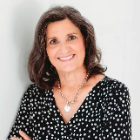
Tammy Pawloski
“Best professional development session EVER!”
Tammy Pawloski has led more than 1500 professional learning events for teachers, school leaders, and stakeholders. She understands the challenges and opportunities of teaching, and has devoted the last twenty years to the study of under-resourced learners—why they struggle and which strategies have the greatest impact. Pawloski is a noted expert because of her breadth of knowledge, however what resonates most with teachers and school leaders is her ability to deliver an uncommon combination of research, practice, and compelling stories from the field that both empower and challenge. Don’t miss this session!
Montessori homeschooling rules
Considering homeschooling with Montessori? Congratulations! You are about to embark on a magical adventure with your child. But first - before you grab that backpack and head out the door, listen to these rules from a longtime Montessorian and homeschooling mom of two. We'll bust some myths and set you walking on the easy path - the one full of joy, wonder, and curiosity!
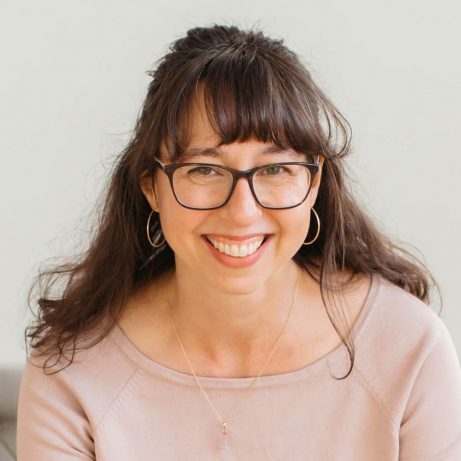
Aubrey Hargis
Aubrey Hargis, M.Ed. is a parent coach and educational consultant best known for her empathetic approach and appreciation for the magic of childhood. As a life-long Montessori advocate and AMS certified guide, her passion has always been to bring Montessori into the mainstream.
As the founder of Child of the Redwoods, she creates online courses and coaches parents in compassionate discipline techniques and Montessori education.
Aubrey lives with her husband and two homeschooled children under a blanket of San Francisco fog, where the coastal cliffs and nearby redwood trails are always beckoning for another adventure.
Boys will be boys
Teachers are often frustrated by boys’ aggression, inattentiveness, disorganization and disengagement. Boys lag behind girls all the way through school. Mr. Maier will differentiate normal boy development from behaviors that are rightfully worrisome. He will review the nature-nurture controversy regarding differences between boys and girls, especially in light of recent research in neuroscience. Finally, he will help identify ways to design environments that meet the physical and social-emotional needs of boys.
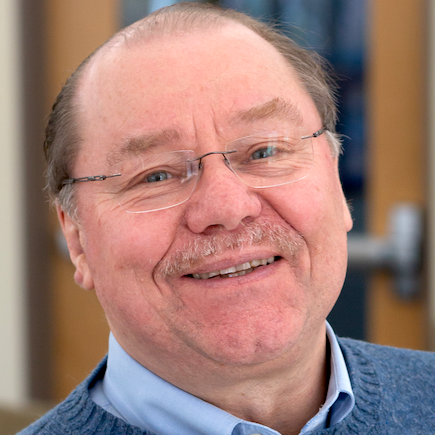
Biff Maier
William (Biff) Maier is Director of Faculty and Curriculum Development at Lexington Montessori School in Massachusetts. He co-directs the Montessori Elementary Teacher Training Collaborative (METTC) in Lexington, MA Biff also works with the Center for Advanced Montessori Studies in Vancouver, B.C. and the International Montessori Education Institute in Taiwan.
Involved with Montessori since 1974, Mr. Maier is a seminar presenter, consultant and mentor to Emerging Leader Fellows for the American Montessori Society. As former Chair of the AMS Teachers’ Section, he served on the AMS National Board of Directors. He received the AMS Living Legacy Award for 2020. Biff earned his B.A. in psychology from Duke University and his M.Ed. from Xavier University, where he also received his AMS Early Childhood and Elementary 6-9 credentials. He also earned an AMI 6-12 credential from the International Center for Advanced Montessori Studies in Bergamo, Italy.
Mr. Maier is married to a psychiatrist who practices privately in Arlington, Massachusetts, and they have two adult children who are Montessori graduates . Ida is a linguist and novelist living in Paris. Ted is a recent college graduate who works in litigation consulting in New York City.
Montessori from the Start
"This workshop is an introduction to Montessori parenting from birth to 9 months old. We will discuss the great potential your child is born with and the way - through the Montessori approach - you can prepare yourself and your baby's environment to allow them to fulfil that potential."
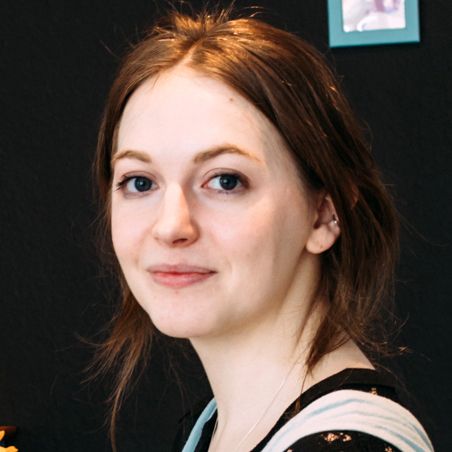
Katelynn Johnson
Katelynn Johnson is the founder, director, and sole teacher at Germany's 1st Montessori early learning center. At her school, Montessori Mother ELC, 80 toddlers and babies attend 1-2 hour Montessori classes with their parents every week. Katelynn is an AMI-certified Assistant to Infancy. She has been teaching for over eight years and is specialised in multilingual environments and language development.
Relationships, actions and human essence of Montessori principles
In this conference, you will learn the deep holistic essence of Montessori and how it applies to every aspect of life.
Experience, Learn and Live:
- The deep connection, correlation and the incredible impact that this method or I must say, way of living can have in your life.
- You will experience many AHA moments that will lead you to live a happier, healthier, peaceful and loving life, with yourself, your children, students and employees.
- You will have the opportunity to live through powerful activities, moments of deep reflection that will awaken, recharge and remind you why the child is the father of man.
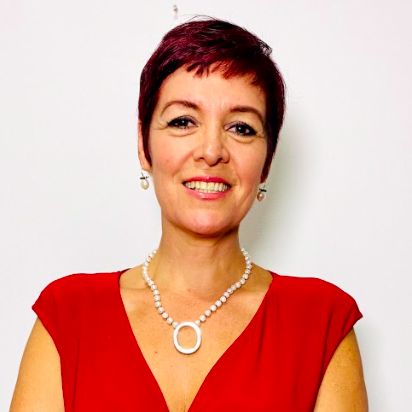
Val Alino
Val is a mom, entrepreneur, volunteer, a certified AMI Montessori Educator with certifications in Assistants to Infancy and Children’s House levels in Atlanta, Georgia and Perugia, Italy. She has been a Guide, Director and led her own Montessori AMI School for over 10 years. She is a Life, Conscious Parenting and Spiritual Coach, who has empowered thousands of teachers, parents, leaders, and children to heal, evolve, grow, transform and unlock their full potential.
Over 30 years of practice empowering families from the USA, India, Spain, Dubai, Mexico, Peru, Colombia helping them to enjoy their parenting journey and create harmonious peaceful families through mindfulness, meditation, spiritual intelligence, and emotional management. In 2020, she was a Keynote speaker at the Global Woman Empowerment Summit in Dubai. Val has been an International Consultant for Higher Ground Education and has also helped companies improve motivation, creativity, work climate, creating mindful communication and conscious leadership.
Val has received multiple awards for extraordinary service to humanity, such as the Telemundo Atlanta award "Guardian Hero award" in 2018 in the USA, the Sunshine on a Ranney Day volunteer of the year Award, and the Community Hero Award from Iheart Media. In 2020, she received the award "Líderes que Forjan el Perú" for her outstanding professional leadership to the Country.
Val Alino Coach
Day 3 • April 14, 2021
Inclusive values are Montessori values
This session will focus on the alignment between the values that support the inclusion of children who learn differently and the shared values that we hold as Montessori educators. If you tell me that you are a teacher, I know a bit about you. If you tell me you are a Montessori teacher, I know so much more. It is our Montessori values that bind us together, guiding our daily practice. The aligned inclusive values you will learn about offer the same guidance for inclusive experiences. Whether you are practicing inclusion or not, these values offer a path for understanding, change, and success. Come to this session, sprinkled with touching stories of inclusive experiences in Montessori classrooms, and walk away with a new understanding of how you can change the life of a child.
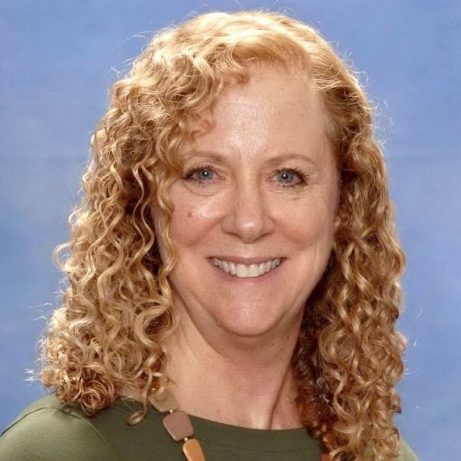
Pamela Shanks
Pam Shanks has been involved in both Montessori and special education for her entire teaching career. In addition to her AMS 3-6 credential, Pam earned a master’s degree in special education from the University of Kansas and held licensing for early childhood education, early childhood special education, and severe multiple disabilities while teaching in Kansas. She worked as a lead teacher in a primary classroom at Raintree Montessori School, Lawrence, KS, for over 30 years. She coordinated the program of inclusion at Raintree while also serving as a supervising teacher for graduate practicum students from KU’s department of special education placed at Raintree. She served as a Field Based Consultant for the entire tenure of the Inclusive Network of Kansas (INKS) and was an instructor for the University of East Carolina's Deafblind Intervener Program for several years. She has presented at a variety of conferences including the Montessori World Congress in Portland; authored many articles on special education in Montessori environments; was a contributing author for 2 books; and authored several on-line modules on special education topics. She currently serves as the Associate Head of School at Bowman School in Palo Alto, CA where she continues to support Montessori teachers and inclusive education.
Positive parenting—Resolving behavior problems the Montessori way
Parents hope for raise children who will ultimately become successful, contributing members of society. They want their children to grow up to be happy, healthy, trustworthy adults. This presentation will provide both the Montessori theory and practice needed to support the development of competent, cooperative, confident human beings. Participants will learn how to support the development of responsibility and self-control. In considering children's individuality and diverse cultural needs and interests, this presentation will help parents deal with a broad range of behaviors and provides tips about how to maintain a positive assertiveness in the face of challenges.
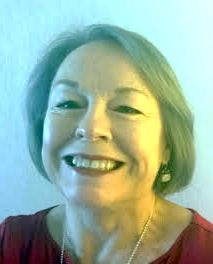
Dr. Darla Miller
Dr. Darla Ferris Miller is author of Positive Child Guidance, an award-winning birth to twelve textbook, currently developing its ninth edition. This foundational text and its translations are used in numerous college courses in the United States and internationally.
Her BA degree is from Baylor University, and her PhD and MA are from The University of Houston. She holds American Montessori Society credentials at both the Infant and Toddler and Early Childhood Levels.
Miller has fostered exemplary Montessori Infant and Toddler care and education in the United States, Canada, China, Taiwan, Vietnam, South Korea, and Russia.
Maria Montessori’s Vision for Science as Practical Life
When should you start introducing science? What does science education look like in Montessori? We will discuss how the process of experimentation relates to practical life and supports executive functioning skills as you move from the first plane of development into the second. We will also give you actionable tips on how you can foster your child's science education.

Letty Rising
Letty is an International Montessori consultant. She holds an AMI elementary diploma for ages 6-12 and an M.Ed from Loyola University in Maryland. She has held positions as a Montessori Elementary Teacher, Education Coordinator, Homeschool Education Specialist, and Head of School in several different Montessori communities over the years. She loves helping young learners discover their interests and strengths.
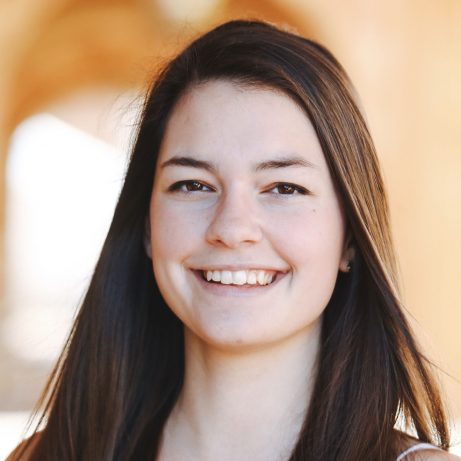
Zoe Rising
Zoe’s specialty is transforming Montessori science education into entertaining exploration with Science Matters. She holds a B.S. in Biology from UCLA and enjoys finding innovative ways to share her love of science with others. She started as a young Montessorian scouring the house for scraps of material to conduct her own “personalized” experiments, and eventually became the “go-to” for giving science lessons when she assisted in a Montessori elementary classroom.
Potty learning - Birth to four years
In this comprehensive talk, Sarah Moudry will share the optimal times to introduce potty learning to a child. Based on the natural development of the child, how we prepare the environment and when we introduce these self-care skills can impact the ease at which a child embraces potty learning. Sarah will cover tips, tricks, research, and facts that have proven to inspire potty learning mastery for thousands of children through her classes, her book Toilet Awareness, and her work in schools around the world. Learn how to use the Montessori method to offer a gentle and developmentally appropriate potty learning routine for any child from birth to four years.
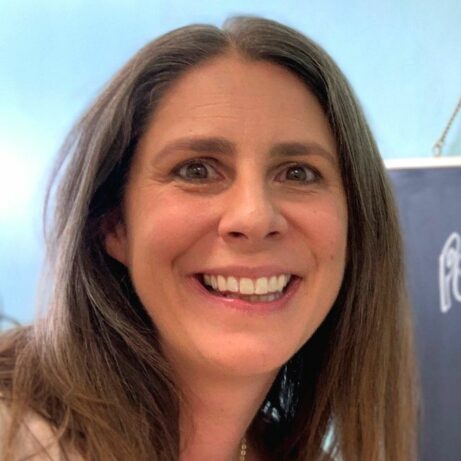
Sarah Moudry
Sarah Moudry creates Montessori environments for children and families and offers consultation services for parents and educators of young children. She is the founder and owner of Studio June (@thestudiojune), a Montessori parent and child education studio and Family Friendly Home (@familyfriendlyhome),an educational environments design firm. She is the author of First Foods to Family Meals, Toilet Awareness, In A Montessori Home, and What is the Montessori Toddler Community? The mother of three children, Sarah lives in the Pacific Northwest with her family where they bake together and enjoy family game nights.
Montessori: Beyond materials
We are usually overwhelmed by beautiful photos of the Montessori environment that we see on social media. We can often feel that we can’t ever afford to do “Montessori” because of all the expensive wooden materials and furniture. Do we constantly feel bad because we don't do “Montessori” enough? In this presentation, I would like to share our personal story of how we do Montessori in Cambodia, and our Montessori journey as a family. Montessori is not just about materials; it is so much more!
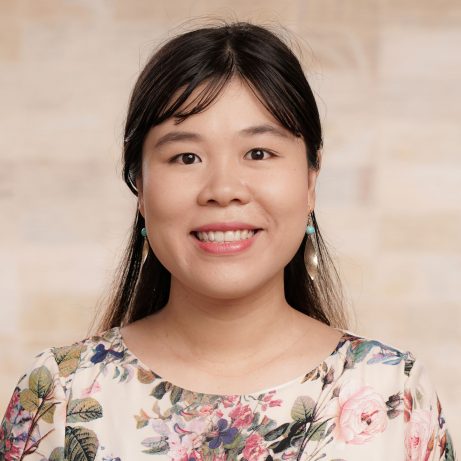
Max Bui
Max earned her B.A in English at Hanoi University, Vietnam and her IAPM Montessori 3-6 training and certification. She was the director of Montessori Training Center of Vietnam (MTCV). This role involved translating and publishing Montessori and parenting books into Vietnamese, designing and manufacturing Montessori materials, setting up new campuses in Vietnam and training Montessori teachers. She is also a certified Positive Discipline Parent Educator and Positive Discipline Classroom Educator from the Positive Discipline Association (CPDPE).
She is currently based in Cambodia with her family. She founded Forbie Montessori as a way to share and spread Montessori education to parents and teachers in Cambodia.
How to educate the senses of your child the Montessori way
Dr Maria Montessori’s insight into recognizing and responding to the education of the young child’s senses is a remarkable aspect of her method, which continues to inspire me as an educator.
“The senses, being explorers of the world, open the way to knowledge. Our apparatus for educating the senses offers the child a key to guide his explorations of the world.” Dr. Maria Montessori
In this workshop you will:
- Have access to a practical handbook for reflection.
- Have an overview of the Montessori Sensorial Materials and the importance of educating the senses of your child from an early age.
- Practice how to broaden and refine your child's intelligence through the 5 senses.
- Connect the senses to real life applications.
- Learn how to offer older children in elementary more sensory experience that can help them excel academically.
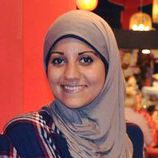
Dina Ahmed
Dina is a MACTE certified Montessori educator with over 10 years of experience in teaching. She is the founder of Montessori Tube Academy, an organization that offers homeschooling parents and teachers easy to follow Montessori courses and resources for 3-12 age group. Dina is passionate for working with young learners helping each child progress in all areas of their development. She takes keen interest in offering a sensorial experience to the child in all age groups.
The mindful home environment nurturing the balanced act of love for children
Our children must feel loved, valued and important by the parents. How can we ensure the hectic daily event stems from our active love for them? Let us reflect on ourselves to be mindful in order to maintain the balancing act of love for our children.
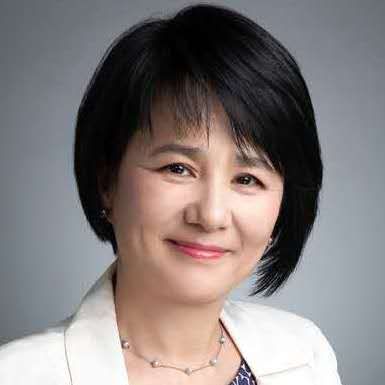
Kiran Paek
Kiran Paek has been in Montessori field over 30 years ago. After receiving her credentials in the early childhood level, she began her career as an assistant teacher and became a master teacher at Princeton Montessori School in Princeton, NJ. After over a decade of teaching at Princeton Montessori, she founded and became the director of Lawrence Montessori School in 2008. Upon finding an opportunity for a directorship at an AMS training center, she moved to Beijing in 2015. Subsequently, she moved to Shanghai to take a director position at a satellite AMS training center. Currently she is the founder and director of a MACTE accredited and AMS affiliated training center, Advanced Study Center for Montessori Community, for which she has developed a hybrid learning programs for early childhood and infant/toddler programs, in Wuxi, China. Since 2007, she has served as a site verifier for Montessori Accreditation Council for Teacher Education (MACTE) and American Montessori Society (AMS).
She holds Early Childhood AMS credential, Master of Early Childhood from Chaminade University of Honolulu in Hawaii, Master of Fine Art from Tisch School of Art in New York University. She loves to take a walk and sing in a choir. Her four children and two granddaughters have been her inspiration to be a part of Montessori Community. She hopes that the ripples of this small movement influence the lives of children, parents and educators in the global community.
Day 4 • April 15, 2021
The observant mind: Lighting the pathway to follow the child
We all know that observation is essential to the work of the Montessori guide, yet most Montessori educators struggle to make it the cornerstone of their practice. In this session we explore how to develop an “observant mind,” that can serve as our guide for supporting the unique potential of every child. The session will address when, what, what and how to observe with practical tips for making it a daily and constant habit. But observation alone is not enough. Once we have the information, what do we do with it? How do we use it to guide our work? Come explore this important topic and learn about how the cycle of observation can help us follow the child.
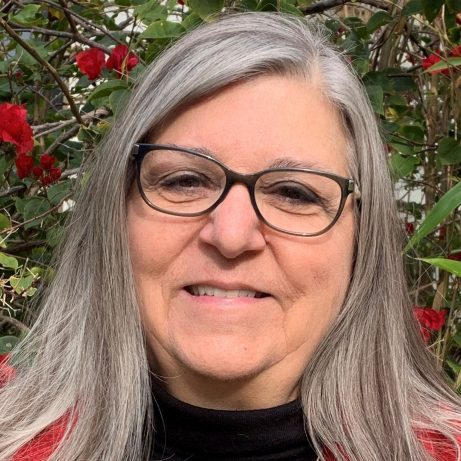
Kitty Bravo
Kitty Bravo has been a Montessori Educator for over 40 years, with experience as a teacher, administrator, board member, teacher educator, and consultant. She received her AMI Primary Montessori Certification in 1977 and has a BA in Human Development from Eckerd College. Kitty is one of the founders of The Center for Guided Montessori Studies and currently serves as the Director of Education. She is a member of the International Montessori Council (IMC) Board of Trustees where she also serves as the Chair of the IMC Teacher Education Committee and is on the IMC Social Justice Task Group for Teacher Education. Kitty is committed to providing support to teachers, schools and families as they strive to develop positive learning environments for children.
10 tips for parents to raise a Montessori baby with love, respect and understanding
Junnifa and Simone will give us a sneak peek into “The Montessori Baby” book revealing their 10 top tips for raising babies in a Montessori way. It’s about learning to observe our baby, responding not reacting, knowing what our baby’s developing needs are, and how can we show them respect from birth. They will show us their favourite must-haves for Montessori babies and - spoiler - remind us that we don’t need to buy much at all.
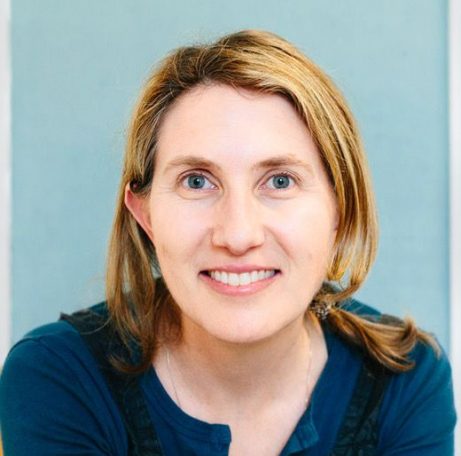
Simone Davies
Simone Davies is the author of “The Montessori Toddler” book and popular blog “The Montessori Notebook”, host of “The Montessori Notebook podcast,” and currently runs parent-child Montessori classes in Amsterdam at her school Jacaranda Tree Montessori. She is also mother to two young adults. Finding Montessori helped her so much when raising her own children and it’s now her passion to help other parents introduce these ideas in their homes too. She is currently co-writing “The Montessori Baby” (0-12 months) and “The Montessori Child” (3-12 years) with Junnifa Uzodike
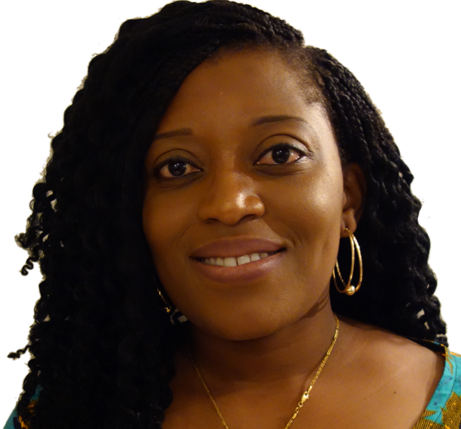
Junnifa Uzodike
Junnifa Uzodike is an AMI trained Montessori guide for the 0-3, 3-6 and 6-12 levels. She is the founder and head of school at Fruitful Orchard Montessori in Abuja, Nigeria.
Since discovering Montessori in 2011, Junnifa has continued to build her knowledge and experience in child development using Montessori principles. She has three children whom she has raised using Montessori principles from birth.
Junnifa’s Montessori work includes guiding children at Fruitful Orchard, mentoring teachers, and closest to her heart is supporting parents in implementing Montessori from birth. She inspires parents around the world to bring Montessori into their lives by sharing her Montessori journey and offering courses and other resources via her blog www.nduoma.com and her instagram page @montessori_nduoma. Junnifa is currently writing two books, “The Montessori Baby” and “The Montessori Child” with Simone Davies
Junnifa serves on the board of the Association Montessori Internationale.
Phonemic awareness activities to prepare children for the sandpaper letters and the moveable alphabet
Children who struggle to remember the sandpaper letters or use
the moveable alphabet likely need to develop more phonemic awareness.
This workshop will walk you through specific activities to help children
1) isolate speech sounds in spoken words so they understand that the
sandpaper letters are symbols that represent speech sounds
2) stretch out spoken words to see how words are made up of speech sounds in a row.
Try these easy phonemic awareness activities and you’ll make it
easier for children to learn letter sounds and then use that phonics
knowledge to build words with the moveable alphabet.
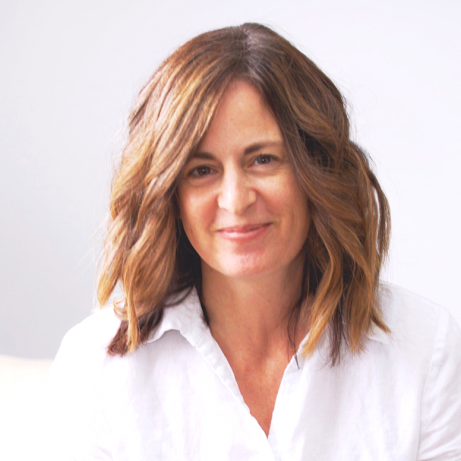
Lisa Adele
Lisa is AMI-certified at the Primary level. After graduating from the Foundation for Montessori Education in Toronto, she guided 3-6 year old children at an accredited Montessori school in Canada for several years. Now Lisa supports homeschooling parents inside her Playful Path to ReadingTM phonics program. Visit www.LisaAdele.com to learn more and register for her free class. You’ll learn the 4-step method to make it fun and easy for your child to learn to read at home using Montessori activities!
Today’s Children: Teaching Special Needs Learners
This 60- minute workshop will provide an overview of diversity and today’s learners with special needs, ideas, and strategies to create a supportive and responsive classroom to support diverse behavior and learning needs, and the important components for a successful inclusive Montessori classroom.
The workshop will close with a brief response to the most commonly expressed concerns and questions asked by Montessorians worldwide.

Christine Lowry
Christine Lowry, M.Ed./MA. With a Montessori credential and degrees in special education- birth to 21- Christine shares her extensive experience using special education practices that align with the Montessori philosophy and pedagogy. She is an adult educator who teaches online courses, offers customized professional development to districts and schools, and supports Montessori leaders and educators using a transformational coaching approach. Her courses and workshops are appreciated for their personable, practical approach with strategies that can be used in Montessori classrooms.
Christine has 40 years of experience in a variety of settings, including founding programs to serve special needs students in day treatment, public-school districts and two Montessori inclusive schools. With a commitment to research and evolving current best practices, she offers the knowledge, skills, and strategies that educators need to serve all kinds of learners.
Global Association of Montessori Education and Sport
Dr. Montessori said that sports “challenge us to acquire a new skill and that this feeling of enhancing our abilities is the real source of delight in the game.”
Join us to discover ways to help children find this enjoyment, to develop new skills, as well as live healthier and happier lives.
We will also discuss the role of exercise in education, science and sustainability, and how sport can be used to connect us all, even during recent times of crisis.
We believe sports can truly help "Uncover the Universal Potential of Childhood".
Check out our website: https://montessorigames.org
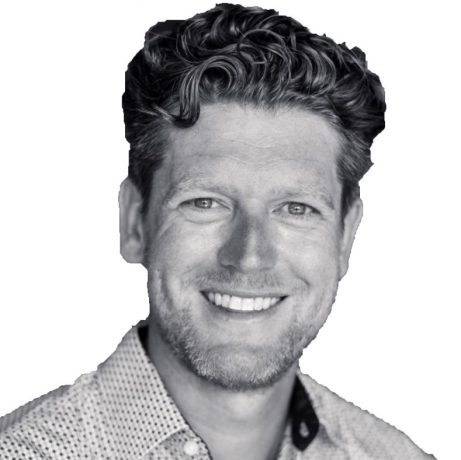
Roelant Wijngaards
Montessori educator at Montessori College, Nijmegen, the Netherlands, board member at Montessori Europe and director of communication for GAMES.
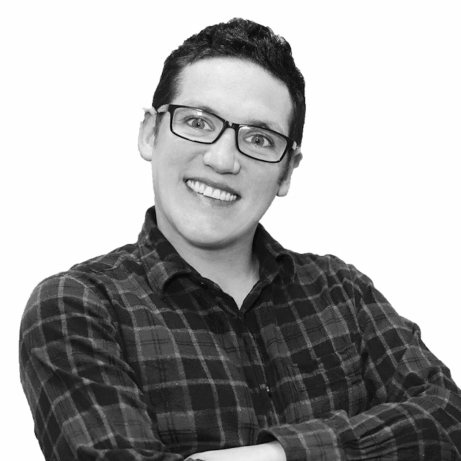
Aiden Bloodworth
Montessori educator in an elementary school in China and director of strategy for GAMES.
We at GAMES believe that sports have the power to unite people and to be a driver for social change, while also encouraging teamwork, health and personal growth.
As a nonprofit organization, our goals are purely that of promoting peace education, cultural understanding and international friendship, by connecting people through sport, education and shared culture.
Typically Montessori, our events have no winners or prizes. Instead, we remove the competition and combine children of mixed age, gender and nationality, to participate in the Olympic spirit of fun, friendship, solidarity and fair play.
The Montessori midwife: Understanding the basic needs of the mother and the unborn and newborn child
As a Montessori Directress, it is our role to create an environment that meets each individual child’s needs and to elicit spontaneous learning. It is similar for the birth attendant caring for the pregnant, labouring and new mother with her newborn. When we know and have internalised the basic needs of the woman and her baby we are able to create an environment where the spontaneous birthing and bonding of the mother and baby can take place.
The Montessori Directress understands the prepared environment and the sensitive periods of the child, and in a similar way, the birth attendant must understand the sensitive periods of the mother and the baby.
“One cannot help an involuntary process, the point is not to disturb it.” - Michel Odent
“To assist a child we must provide him with an environment which will enable him to develop freely.” - Maria Montessori
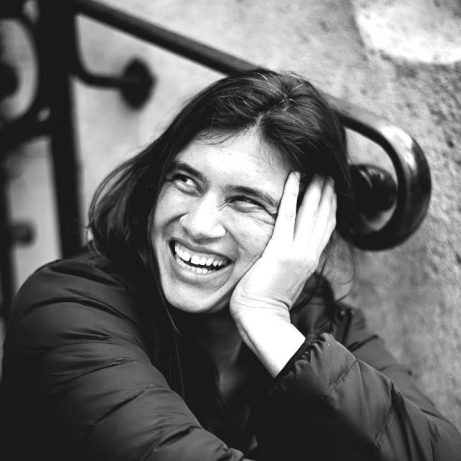
Ruth Ehrhardt
I am trained as a Certified Professional Midwife (NARM), a doula (WOMBS (ZA) / Paramanadoula (UK)), and a Helping Babies Breathe and Helping Mothers Survive facilitator and master trainer.
Originally born in Switzerland, I moved to South Africa with my South African-born mother and younger sister when I was eight years old and have lived there ever since. My mother Carol, bought a protea flower farm an hour outside of Ceres ( a small town, approximately 2 1/2 hours from Cape Town) and accidentally ‘fell’ into catching the babies of the local farm labourers who called for her because she had ‘healing hands.’ My mother was the midwife for my first birth.
The mother of four home birthed children, I trained as a WOMBS doula with Irene Bourquin in 2009.
I completed the Paramana doula course with Dr Michel Odent and doula Lilliana Lammers in London in 2010 and studied Advanced Midwifery with Ina May Gaskin, Pamela Hunt and the Farm Midwives in 2011.
With colleague Lana Petersen, I started Home Birth South Africa in 2010, a web database for those seeking information and advice on home birth in South Africa. Together, we also run the Cape Town Home Birth Gatherings, a quarterly gathering for those seeking information and support on home birth in Cape Town and surrounds.
I am part of the team that organises The Cape Town Midwifery and Birth Conference, which is aimed at sharing and collaboration between South African birth professionals and the women they serve for the purpose of promoting and supporting safe pregnancies and births.
I am the author of The Basic Needs of a Woman in Labour, a book based on the work of Dr Michel Odent and which explores the hormone oxytocin and the environmental factors that affect it. The book is available in English, Italian, Russian and Portuguese – with many more translations on the way!
How to ask your child questions that let her know you love her mind
Attention is love. Those aspects of our children that we focus on and nurture will blossom and grow. If we love our children's minds, then their minds will grow. But we must show, not tell. That is, in order to love our child's mind, it is important that we interact with their intellect in a manner that let's them know that their minds and thought matter to us. How do we ask questions that invisibly let our children know that their minds are loved? This session will provide both concrete examples and general guidance on how to love your children's minds in such a manner that their intellects will blossom in the light of your love and attention.
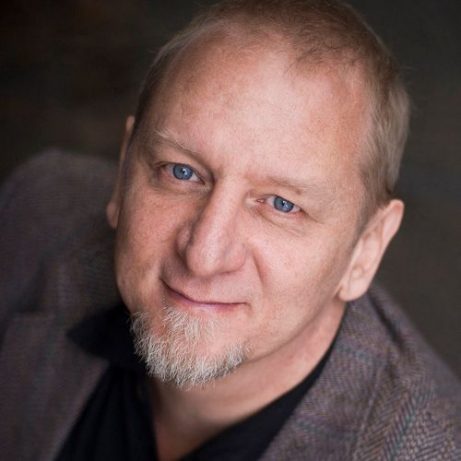
Michael Strong
Michael Strong is the founder of Expanse, a virtual middle school based on warm peer relationships, including Socratic dialogue, team projects, and personal mentoring. He is an experienced school creator whose projects include Moreno Valley High School, a charter school in New Mexico ranked the 36th best public school in the U.S. by Newsweek; Winston Academy, a school for highly gifted students in Florida who successfully completed AP exams; and The Academy of Thought and Industry, the high school model for the largest U.S. Montessori network. He is the author of The Habit of Thought: From Socratic Seminars to Socratic Practice and Be the Solution: How Entrepreneurs and Conscious Capitalists Can Solve All the World’s Problems.
Day 5• April 16, 2021
I Can do it!: Supporting self-efficacy in Montessori
Whatever we think, we’re right. If we think we’ll never run a marathon, or graduate high school, or learn how to tie our shoes, we’re right. Belief in yourself can limit, or can serve as stepping stones to growing abilities, seeking knowledge, and drive to achieve. How does Montessori philosophy supports development of self-efficacy? How can we explain this to current and prospective families and educators? How can the development of these internal skills help us adjust our perspective?
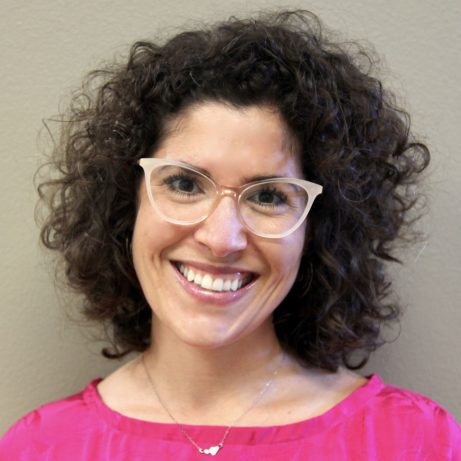
Charlotte Snyder
Charlotte Snyder is Head of School at The Baan Dek Montessori in Sioux Falls, South Dakota. She attended Montessori through Elementary in California, and completed the Primary training at Montessori Northwest in 2010, and earned a Master of Education degree from Loyola University Maryland. She particularly enjoys sharing Montessori philosophy and building relationships with families on Baan Dek’s blog and podcast.
Spending quality time with Children
Are your little children dying for your attention and time? Does work take up most of your time?
Our little ones will only remain little for so long. It is essential that we reserve some time for our children in our busy schedule. We will share some ideas on how to spend quality time with them.
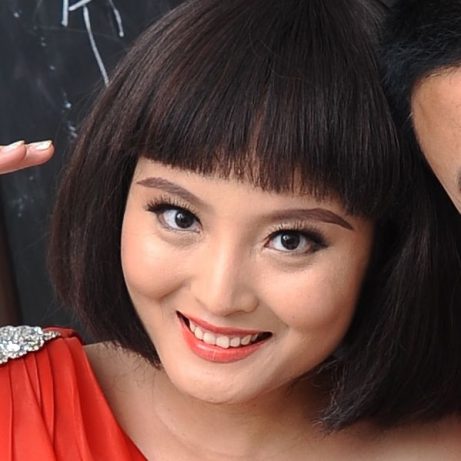
Michelle Gao
- Trainer of Montessori Teacher Preparation International (MTPI)&MTP OF WA
- Montessori Certificated Teacher from 0-12years
- Founder of Luna Montessori International(LMI)
- MIA Montessori Institute OF America certificated Teacher (0-6years)
- AMI Montessori Institute of Atlanta Foundation course(3-6years)
- AMI Montessori Institute of Atlanta Certificated Elementary Teacher (6-12years)
- Mom of 4 kids, Living in GA,USA
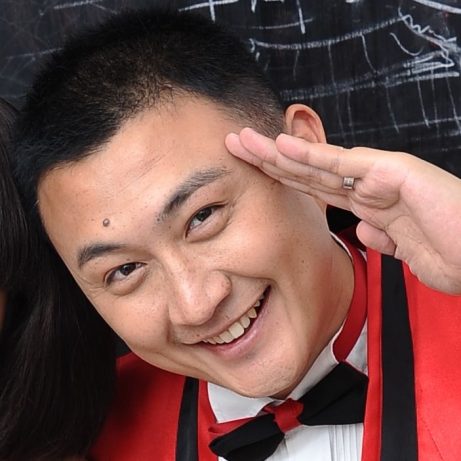
James Lu
- Trainer of Montessori Teacher Preparation International (MTPI)&MTP OF WA
- Montessori Certificated Teacher from 0-12 years
- AMI Assistants to Infancy Certificated Teacher (0-3)
- AMI Montessori Institute of Atlanta Foundation course(3-6)
- AMI Montessori Institute of Atlanta Certificated Elementary Teacher (6-12)
- University of Leeds, UK - M.A. (Hons) in International Communication
- Communication University of China - M.A.(Hons) in Television Arts and Technology
- Communication University of China - B.A. (Hons) in Television Journalism
Dad of 4 kids, Living in GA, USA
Recent scientific recommendations for teaching Mathematics and Sciences: How Dr Montessori saw all of this in 1907
A study (Nov.2020) by the Science and Technology Academies in France has recently made recommendations on how to best teach mathematics, technology and the sciences to students in the National Education system, for teachers and for teacher trainers. Unsurprisingly, all of these recommendations validate what we currently do in a proper AMI Montessori school: mixed ages, child-led study, and the joy of learning, generally. I will bridge research from today’s scientific and cognitive scientists’ research and what is done on a practical level in the Montessori classroom.
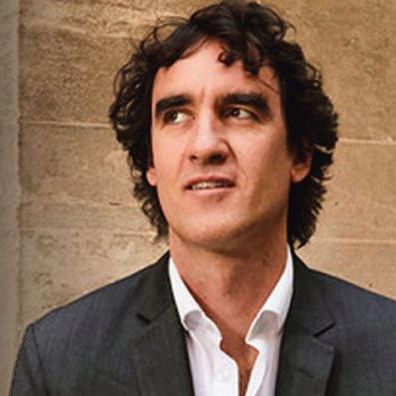
Laurent Lavollay-Porter
Laurent Lavollay-Porter is a Franco-American bilingual (English & French) Montessorian. A Montessori child himself and AMI trained at the 3-6 and 6-12 levels (Maria Montessori Insitute in London), Laurent spent 5 years as a Children’s House guide and one year as an Elementary guide, above being the administrator. Laurent has consulted for various school creations internationally and speaks regularly at Montessori conferences. He is passionate about pure Montessori education, bilingualism and the scientific approach to child development. Laurent is the Director of Development for the Bilingual Montessori School of Paris, At Montessori and Penrith Education in Paris, France. His mother Barbara founded the School in 1972 (montessori-paris.com) and received her diploma from Dr Mario Montessori himself in Washington D.C. back in 1965.
At Montessori https://www.at-montessori.com
Ecole Montessori Bilingue de Levallois-Perret: https://www.ecolembl.com/en/
The Bilingual Montessori School of Paris www.montessori-paris.com
Montessoriscool http://montessoriscool.fr
Montessori at home: How to bring Montessori into the home without turning your house upside down and spending hundreds of dollars
Most parents feel overwhelmed when they’re first getting into Montessori. They like the idea of encouraging independence and concentration but often feel the need to purchase all the same materials they see in classrooms.
Montessori in the home can be so much simpler than that.
By learning how to follow your child’s lead, include them in practical life activities, and make a few easy and low cost (or free!) changes around the home, you can achieve all the benefits of Montessori - without the cost or pressure.
I’ll go through each room in the home and show you where there’s opportunities to promote independence. I’ll also provide simple instructions to demonstrate practical life skills and other at-home Montessori activities.
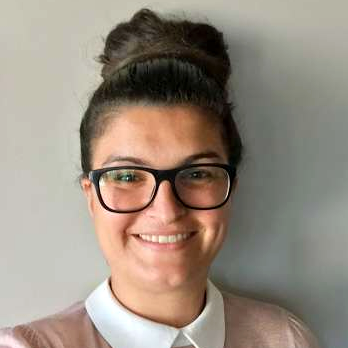
Katie Lannaman
Over the years, many children have inspired and strengthened Katie's passion for Montessori. She now spends her time educating parents who share her dream of bringing Montessori into the home.
Katie is the Director of the Infant Toddler Diploma Course at Montessori Teachers College in Toronto and Creator/Teacher of the online Montessori at-Home program with The Montessori Room.
Katie discovered her passion for working with toddlers at an early age and has dedicated her post-secondary studies to learning about child development. She holds a B.A. in Childhood and Family Relations, as well as an Early Childhood Education Honours Diploma. Katie is a registered member of the College of Early Childhood Educators since 2013. She received her diploma in Montessori Infant Toddler education in 2015 and has been working with toddlers in various childcare centres and schools since 2006.
Katie took a break from the classroom this year to focus on creating an accessible program for parents who are interested in learning how to bring Montessori into their homes. You can find more details about her online program here: https://info.themontessoriroom.com/at-home/
Healing hearts: Creating a safe space for those affected by trauma
In this presentation, we will discuss the different types of trauma, as well as how trauma can affect an individual over the course of a lifetime. The goal of this presentation is to share information and practical tips that will help the Montessori community be at the forefront of providing healing spaces for those affected by trauma.
You will learn:
- The signs and symptoms of trauma
- Trauma sensitive strategies for the classroom setting
- The importance of becoming trauma-informed
- Why trauma can be misdiagnosed
- How Montessori can be a safe haven for healing
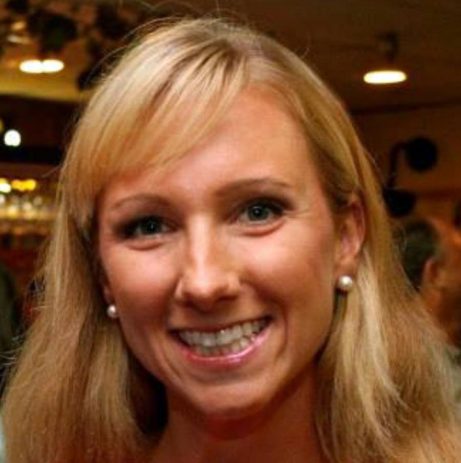
Brynn Rangel
Brynn Rangel is a Board Certified and Licensed Behavior Analyst that has been working with individuals, families, schools, and organizations since 2006. She specializes in implementing systems of support that meet the social, emotional, and academic needs of unique learners.
She is the current Resource Specialist at Oneness Family School in Chevy Chase, MD and teaches for The Chicago School of Professional Psychology in Washington, DC. Brynn has developed and taught courses for educators and administrators through the Montessori Foundation, The Center for Guided Montessori Studies, Westminster College and Sarasota University. She continues to offer workshops throughout the world.
The environment of life after birth
We will focus on the months following birth, as the infant interacts within the
environment of the family, transitioning and adapting to life in the world. During this period, both mother and baby move through a natural process of attachment and separation, helping each other come into acceptance of their new lives.
We will explore the needs of the newborn, living in the period of the Unconscious Mind, and the Sensitive Periods, as well as areas of care in the home environment. This process centers on relationship and connection, which is essential and ongoing.
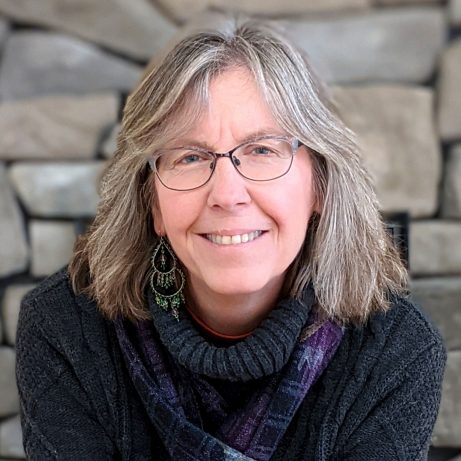
Pamela Green
Pamela Green is the mother of two sons, a Montessori parent, and Grandmother. She is the owner of Ananda Montessori, a Montessori Playgroup in North East, Pa. She has been teaching and administrating in Montessori as a credentialed (Early Childhood, Elementary I & II, Parent-Infant Facilitator Training), and Positive Discipline Parent Educator, for over thirty years. Since 1990, she has served as a birth doula, midwife assistant, and childbirth educator. In addition, Pamela offers online courses on parenting, creating Montessori Playgroups and Positive Discipline, and is a consultant and mentor to teachers, staff, schools, and parents, worldwide. Along with these activities, Pamela loves to spend time outdoors, gardening, reading, and sailing on the waters of Lake Erie.
Follow the child, follow the parent
“Follow the Child” is a commonly used phrase in Montessori circles. Teachers and guides use the science of child development, keen observation, and the spirit of childhood to be attuned to the needs of individual children. How can Montessori teachers and administrators tune into parents as well? How might they learn to “Follow the Parent?” Children benefit when schools partner with parents. Knowing what today’s parents need and want for their children provides a channel into this partnership. This workshop discusses how parents want the practical advice of bringing Montessori into their homes. They want bite sized information delivered on social platforms. They are eager for suggestions for setting up a prepared home environment, and they are excited about providing meaningful play/work for their children, including social emotional learning ideas.

Jessica Rolph
Jessica Rolph is Cofounder and CEO of Lovevery. Prior to Lovevery, Jessica was the founding Partner and COO of Happy Family, helping to launch, build and lead Happy Family to its position as a top organic baby and toddler brand in the US. Happy Family was acquired by Group Danone in 2013. Jessica also co-founded the Climate Collaborative , a non-profit organization helping companies in the natural products industry take meaningful steps to reverse climate change. She is an Aspen Institute Henry Crown Fellow and was awarded the Park Leadership Fellowship, graduating from Cornell’s Johnson School in 2004. Jessica also holds a BA from Cornell University, where she graduated cum laude. Jessica and her husband, Decker, live in Boise, Idaho and are parents to Beatrice, Thacher and Leland.
Day 6• April 17, 2021
The Great work
The phenomenon of false fatigue is well known by students of Dr. Maria Montessori. After working an hour or more, children’s quiet concentration gives way to restless movements. The children may appear as if they are resisting having to take a nap. But we understand their fatigue is false. The children are instead filled with energy from their concentration. False fatigue is a hallmark of something else: It is a prelude leading children to what Dr. Montessori called their Great Work.
During this presentation, we will identify the Great Work as an avenue to normalization. We will also explore Dr. Montessori's discoveries for how we can better guide children spiritually so that their impulsive behaviors transform into obedience by choice. When this occurs, children will have fulfilled their first plane of development, and we will have completed Dr. Montessori's mission to serve life.
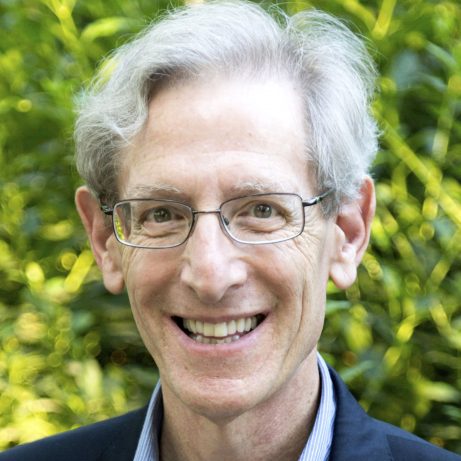
Dr. Paul Epstein
Paul is the educational director of Designs for Lifelong Learning. He has worked in education as an administrator, university professor, teacher trainer, classroom teacher, researcher, consultant, and author.
A highly regarded international and inspirational speaker, Paul brings transformative learning experiences to educators and parents throughout the world. He is the author of numerous articles and books including An Observer’s Notebook: Learning from Children with the Observation C.O.R.E. He is also the co-author of The 60-Day Montessori Observation Workbook and The Montessori Way, a definitive work on the Montessori experience.
His administrative experiences include working as a head of Montessori schools, and he brought the International Baccalaureate Middle Years Program to one of the schools. Paul also works as a director and instructor of Montessori teacher education programs. He has been a Montessori classroom teacher in Montessori early childhood, middle, and high school programs.
Paul holds Montessori teacher certification in early childhood and secondary levels one and two from the American Montessori Society and his doctorate is in Cultural Anthropology.
Raising a peaceful child: The Montessori way at home
In this lecture, we will focus on the importance of the prepared adult, prepared
environment, creating a culture of spontaneous activity, observation, the role of an adult in the Montessori environment, and how to invite a child for a presentation.
Learner Outcomes:
● To further understand the relationship between child, the adult, and the Montessori
environment.
● To understand the importance of spontaneous activity in the learning experience.
● To create a culture of spontaneous activity through observation.
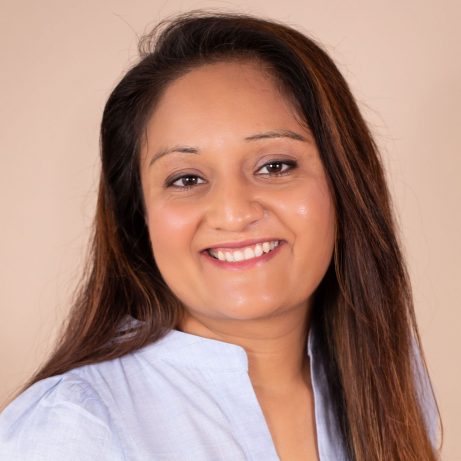
Disha Bonner
I am a Primary & Elementary Certified Montessori Teacher.
Prior to becoming a parent, I worked as a teacher and as a
Curriculum Coordinator for many years in a Charter Montessori School.
I have a Masters in Elementary Education with specialization in Montessori. I have researched, designed curriculums and assisted my school in achieving AMS accreditation.
After becoming a mom, I have poured all my passion and experience into creating a culture of respect, love, and peace for my son.
Education in nature
Education in Nature offers children unique, unparalleled sensory experiences, and is the most effective increase in mental and physical well-being. In nature, children develop their empathy, patience, and self-confidence, attitudes such as curiosity, responsibility, and empowerment, skills such as observation, communication, collaboration, and problem-solving. Its goal is on the process of learning, not the end result, thus children become more creative, critical, reflective, intuitive, innovative, and active thinkers.
This session is a practical workshop for anyone to follow, on how to approach Education in Nature and how to develop the Explorer's Mindset.

George Năzăreanu
I am a curious biologist, visual artist, storyteller, National Geographic Educator, and have been an explorer since I was 5 years old. I have worked for 10 years in Educational and Scientific research at the National Natural History Museum and for the past 5 years, I work as a Naturalist Teacher at Karin's Kids Academy, Bucharest, Romania.
Knowing that play is the most effective way children learn, I develop innovative play-based educational projects in Early Childhood Education at Karin's Kids Academy and I inspire children to develop their Explorer's Mindset through authentic learning experiences.
Unpacking freedom in the Montessori environment
One of the most common misconceptions of Montessori schools is that children don’t have to do anything if they don’t want to. Dr Montessori advocated freedom as “the key to the process of development” but what did she mean by freedom?
Why should children have freedom? How should a teacher facilitate freedom in the class?
This talk seeks to answer these questions and to explore the concept of freedom and its place and application in a Montessori 3-6 Environment.
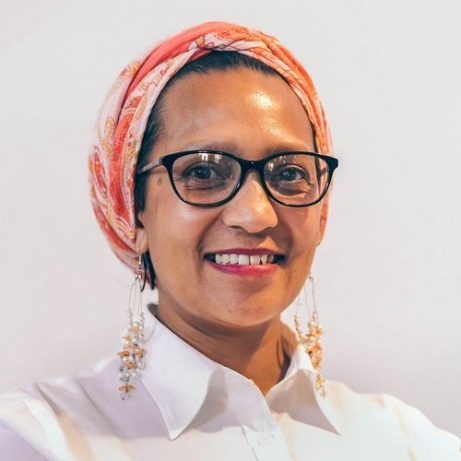
Shamiemah Jassiem
Shamiemah Jassiem is a Montessori Teacher Trainer with over 15 years of training experience and over 7 years of experience as an office manager and principal at various Montessori schools. She has presented at several conferences and conducted numerous Montessori workshops in both townships, villages, and more affluent areas in South Africa and Ghana. She is passionate about sharing the Montessori Philosophy and method with others and welcomes this opportunity to reach people from all around the world. Reach out if you would like to connect with her: shamiemah@elfmontessori.co.za
From baby to toddler – How to follow your Montessori child
Welcoming a child into your home is the most precious moment for a family but it can also be a transitional period for everyone involved. During our time together we will reflect on how we can prepare the environment for welcoming the Montessori baby into our home and how to transform the home to prepare for a moving toddler. We will talk about how to set up the spaces and how to accompany you and your child throughout the first years of life. We will talk about sensory periods, respect, order, outcome of independence, Montessori activities, curriculum, and how to encourage parents to see how the child is our most
precious teacher.
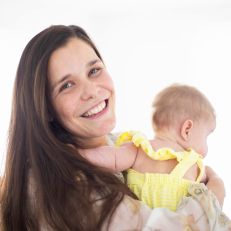
Neus Carmona
Neus holds a bachelor’s degree in Early Childhood and Elementary Education and Master’s degree in Early Childhood Education with emphasis in Montessori Education. After graduating, She moved to Italy to complete a Master in Educational Psychology from the Università degli studi di Firenze. I was drawn to Montessori while living in Italy and I started pursuing my Montessori certifications in the US. I hold Montessori credentials for 0-3, 3-6 and for Parent- Infant and Child.
She has been a Montessori Toddler and Early Childhood Certified Teacher for the past ten year and also a Montessori consultant for different schools in New England. Neus was drawn to the Montessori philosophy because of the hands-on approach to learning and the emphasis on the individual child as well as their responsibilities and independence. She enjoys working with children, and loves watching their eyes light up when they grasp a new concept.
She has recently become a mom of a wonderful girl. She offers 1:1 Infant and toddler parent consultations and workshops. Connect with her through her Instagram page @montessorianbyheart , her website www.montessorianbyheart.com or send her an e-mail at hello@montessorianbyheart.com
Key elements for understanding your child’s drawing
Children love to scribble with random shapes and lines. Have you ever wondered if there are any hidden meanings of their creative intentions? Are you someone who finds it fascinating to watch a child create a drawing and wonder how that drawing can tell you about their inner world point of view or even how it speaks about their personality? In my session I will share some interesting elements we tend to see from children’s drawings. The intent is to educate ourselves on what to look for when we look at our children’s drawings. It can be a fun journey as our children’s drawings change, often in unison with certain developmental stages.
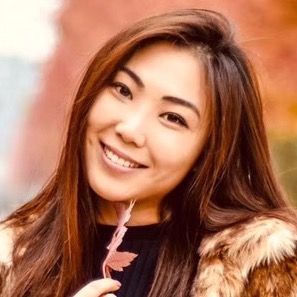
Meishan Hutchison
Meishan is a bilingual artist and educator who has a keen ability to see the distinct intricacies of the world around her. As a practicing artist, Meishan weaves her life experiences into her art. As an educator, Meishan has held numerous roles in primary and secondary educations as well as higher education. With her own international education experiences, she is eager to promote the creative learning through art globally. To simply bring more creative art experiences to more families and make art accessible to all.
Montessori Everywhere
Community is everything. We are better together. This presentation will explore what community means, for us as adults and for children at each plane of development. Montessori Everywhere is connecting the global Montessori community, we are challenging ourselves and our practices, and we are committed to ensuring Montessori is accessible for all
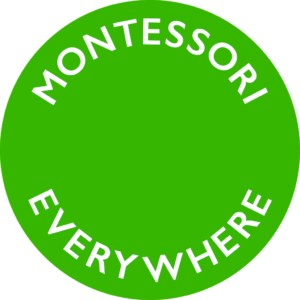
Day 7• April 18, 2021
How to make observation the key to connection with your children and your most consistent "Best practice"
The Montessori Method is based on a clear and consistent practice of observation. In The Advanced Montessori Method, Vol 1, Dr. Montessori writes, "it is necessary that she (the guide) should put herself into immediate relation with the truth by means of rigorous observation..." Yet, observation can be the part of our practice that gets replaced with more lessons, micro-managing the activities, or simply staying on top of the never-ending "to-do lists." The irony is that with regular, reflective observation practice, many of the items on our To-Do lists will vanish because the actions we take will be more focused, on-point, and efficient. I'll guide you in a journey of discovery with the end result being an observation ritual that will create deeper connections, more purposeful actions, and the outcomes you're seeking.
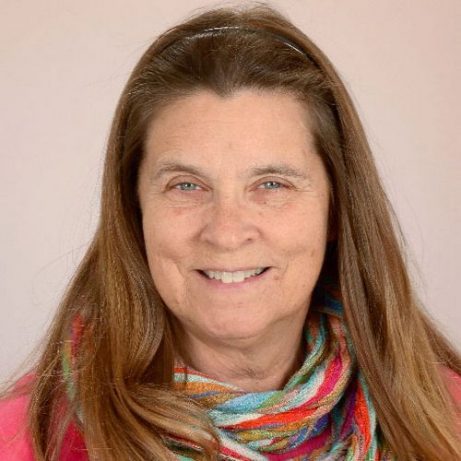
Claudia Mann
Since 1983, Claudia Mann has been enchanted with Montessori education. Certified Elementary I, II and Secondary I, Ms. Mann has guided children and adults in classrooms and schools to be passionate learners, sustaining Cosmic Education as the heart and soul of the Montessori vision. After more than 25 years in the classroom, Ms. Mann was part of the founding team at Chaffee County Montessori School in Salida, CO. After nearly 10 years with CCMS, she and her husband relocated to southern California where she became the Head of School for LePort Montessori Encinitas. Ms. Mann currently coaches teachers and school leaders both onsite and online through www.fossilicious.com and www.inspired-learning-Montessori-education.com.
The conversations with parents I hate to have - Tools for navigating difficult interactions and conferences
If there was ever a time in the history of Montessori education where it was imperative to establish and maintain a positive partnership with parents – this is the time. More than ever we need parents who can help us understand the needs and tendencies of the students we serve. More than ever we need parents to understand how Montessori pedagogy can be applied appropriately at home. More than ever we need active parent support in helping us keep our school communities safe, stable, and sustainable.
Cultivating trust, transparency, and loyalty among parents requires Montessori guides and school leaders to create a “Relational Prepared Environment” with our families. There are specific strategies and steps, tools and techniques, for achieving this.

Jonathan Wolff
Jonathan Wolff is a Montessori school consultant, leadership coach, teacher educator, and author, who brings to his work 40 years of experience in Montessori education as a classroom teacher and school administrator.
He is the author of numerous educational publications, including, The Self-Awakened Child – Character Education Program.
Jonathan holds a Bachelor of Science in Secondary English Education from Temple University and a certification as a Primary guide from the Association Montessori Internationale. He studied with Mother Isabelle Eugenie, an early student of Maria Montessori
Respecting your child’s work: Raising confident problem-solvers
Play is the work of the child, or so it is said. But what does that even mean? And why does this shift in the way we view our child’s playful learning matter? In this talk we will uncover the true meaning and importance of respecting your child’s work. We will shift to a major reframe for our children’s benefit, and also, for us parents. Learn actionable tools to start implementing today! What will we discuss?
- Why does the shift to view your child’s play as “work” matter?
- How can you respect your child in their work?
- Supporting your child’s confidence and problem-solving abilities
- The benefits of Autonomy Supportive Parenting
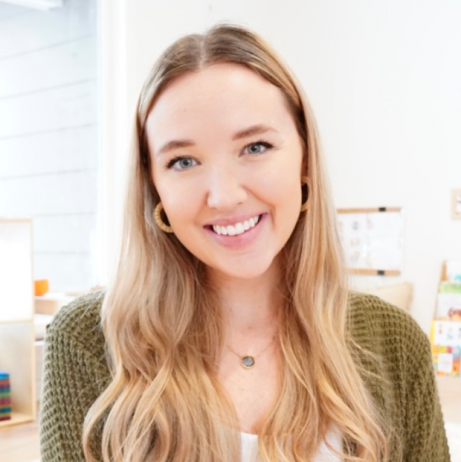
Haley Turner
Haley Turner is a Montessori toddler mom and founder of Sweet Home Montessori, a Positive Parenting and Montessori resource guide. She graduated with a degree in Early Care and Education and a certification in Early Childhood Development. Haley also completed her diploma in Montessori Education (ages 3-6 ). She is a certified Positive Discipline Parent Educator and has completed the RIE Foundations Theory and Observation Intensive Training.
While living out her dream as an early childhood educator, Haley was diagnosed with a rare brain and spine condition. The condition required immediate neurosurgery and ultimately ended her classroom teaching career. After reflection, Haley realized it was time to apply Maria Montessori’s theories to her own life - making the shift from seeing her health as a barrier and instead focusing on the opportunity to think outside the box and honor her unique path.
Haley now lives out her passion by teaching parents online how to raise capable children in a peaceful home. She brings Montessori and respectful parenting guidance to families all over the world! Haley homeschools her own Montessori toddler and shares practical and effective tools with parents online through her workshops, 1:1 consulting, and social media platform. You can connect with her on Instagram SweetHomeMontessori and her website https://sweethomemontessori.teachable.com/
Disability: Creating an inclusive home and classroom
As a mom and a paraplegic, Yuliya will share how her family has incorporated Montessori into their home and parenting in an environment where one of the caregivers is disabled. Yuliya has two children - ages 8 and 4, and is a wheelchair user. In addition, this presentation will explore tips for how parents, teachers, educators, and caregivers working with children more broadly, can provide an environment that is inclusive towards people with disabilities.
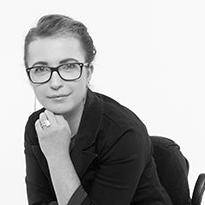
Yuliya Fruman
Yuliya is the founder of Welcome to Mommyhood, where she shares life as a mother, raising bilingual children in a Montessori inspired home, and teaching English. Yuliya is also a paraplegic and shares her experiences teaching and parenting from a wheelchair.
She writes about learning activities and printables for parents and teachers, tips and resources for setting up a Montessori home, and life from a wheelchair. Yuliya creates printables for Montessori classrooms to help teachers create educational and fun activities for their students.
Yuliya is passionate about breaking down barriers when it comes to disability and showing that anyone can implement the Montessori method!
Montessorian and Adlerian concepts of independence and contribution in action for good mental health from the start.
Dr. Adler’s psychological theories have shown for many years the results of encouraging children’s contributions at home is synomynous with good mental health. Likewise, Dr. Montessori helped us see the importance of independence and at the same time building community through engaging in purposeful and focused work while taking care of oneself and of the others around me.
In this short lecture I will share the need to understand the child’s intrinsic need to feel a part of the family as well as to contribute to its running and well-being as the best way to help them develop good relationships with others and with themselves. I will share important strategies and tips to foster good mental health from the very start of life!
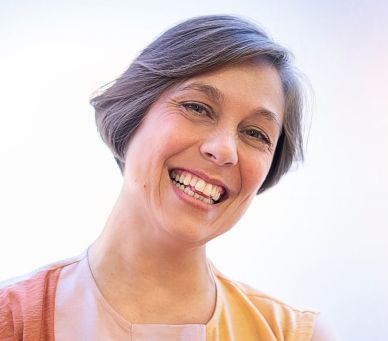
Cristina Sanz Ferrero
Cristina is the Founder of Life Skills Escuela para la Vida a Spain-based project that operates all over the world remotely and in person when the pandemic allows.
She is an Adlerian and Montessorian Counsellor guiding teachers and parents through their journeys with children offering Family and Individual Counselling as well as parenting classes and teacher trainings in Positive Discipline and Montessori pedagogy.
She trained as a Primary Montessori Guide obtaining her first MA in Montessori Education in 2015 from International Montessori Institute and Universitat de Barcelona in Spain. She has more than 15 years experience in the field of education, having worked in traditional and Montessori settings in Spain and the UK, specialising in Early Years.
She is a Certified Positive Discipline Trainer working closely with public and private schools to spread democracy and respect in a variety of school settings including many Montessori schools in Spain. She is currently completing her second Master’s Degree in Adlerian Counselling.
escuelalifeskills.com cristina@escuelalifeskills.com
The basic needs of the newborn person
The abrupt passage from the protected space inside mother into a world full of stimuli is one of the greatest challenges for a sensorial learner and is, according to Maria Montessori, the most difficult transition of ones entire life. When you were born, what would you have wanted? Adopting the perspective of the newborn allows us to empathize with these basic needs and enter into a harmonious relationship. This workshop will take you through the 15 points on the Newborn written by Adele Costa Gnocchi, one of Montessori's first students in 1909 who studied the newborn under her name from 1947 to 1967.
Please have paper and a pen handy during the workshop for a few short writing activities.
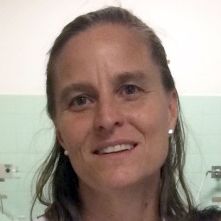
Karin Slabaugh
After 20 years working with children from birth to three, Karin dedicated herself to the Montessori approach for the newborn. She moved to Italy to gain direct experience with
newborns and learn to observe them, working with first generation Montessorians who studied under Adele Costa Gnocchi in the 1950's and 1960's. Karin and an international
group of newborn and early childhood advocates are developing a non-profit organization called Montessori For Life and a Montessori retreat center in Italy, dedicated to offering perspective changing courses about the first minutes, hours, days, months and years of life. Montessori-for-life.org